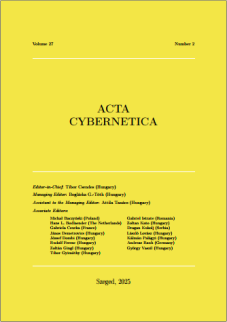Smart Contract in the Loop: Fault Impact Assessment for Distributed Ledger Technologies
DOI:
https://doi.org/10.14232/actacyb.312501Keywords:
distributed ledger technology, blockchain, formal verification, model checking, Java Pathfinder, Hyperledger FabricAbstract
Due to their decentralized and trustless nature, blockchain and distributed ledger technologies are increasingly used in several domains, including critical applications. The behavior of such blockchain-integrated systems is typically driven by smart contracts. However, smart contracts are application-specific software and may contain faults with severe system-level impacts. This is especially true in the case of the extensively used Hyperledger Fabric (HLF) platform, where smart contracts are written in general-purpose languages (Java, among others), and applications can go far beyond handling virtual-currency-like assets. In this work, we present a novel formal-verification-based approach to smart contract verification and a high-level empirical model of the HLF platform. Our Smart Contract in the Loop (SCIL) method uses a model checker (Java Pathfinder) to check whether specific error properties hold for a given smart contract, while a predefined combination of platform-level fault modes is active. We facilitate the checking of HLF smart contracts without modification and enable the propagation or non-propagation of platform faults through the smart contracts to the system failure level.
Downloads
Downloads
Published
How to Cite
Issue
Section
License
Copyright (c) 2025 Acta Cybernetica

This work is licensed under a Creative Commons Attribution 4.0 International License.







